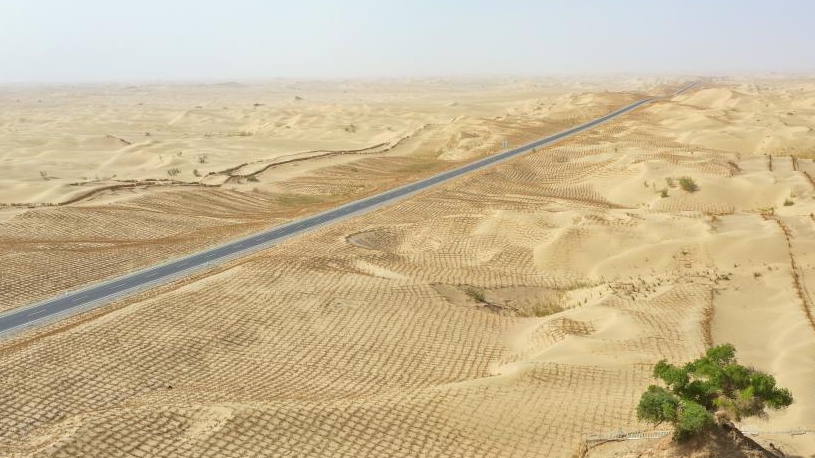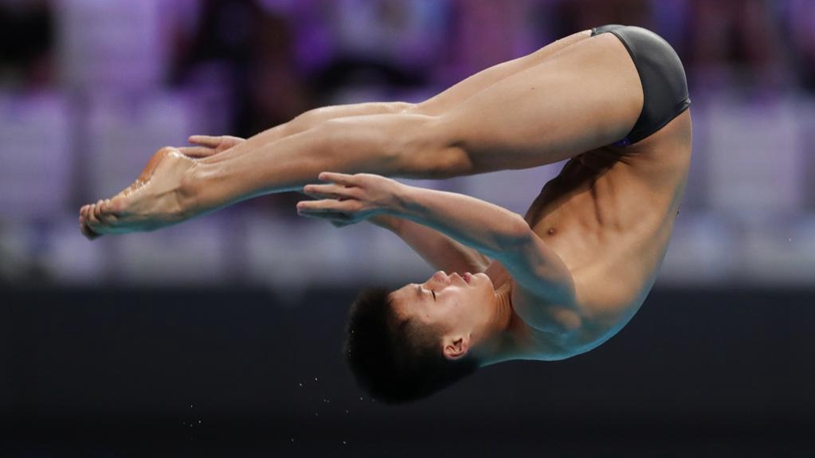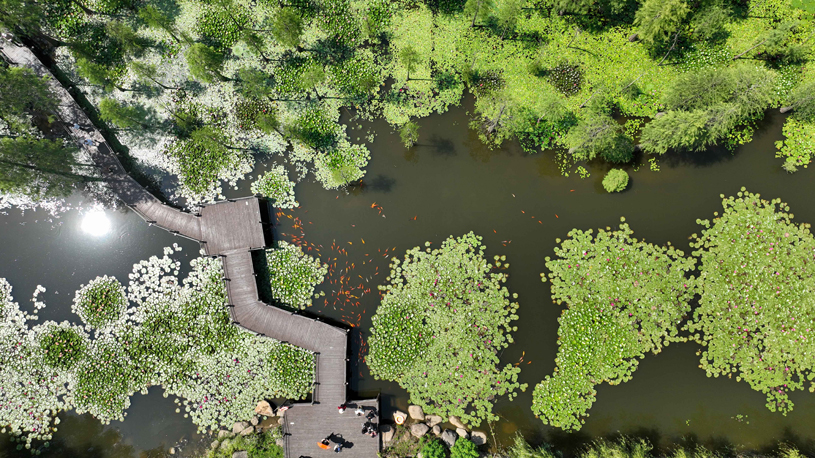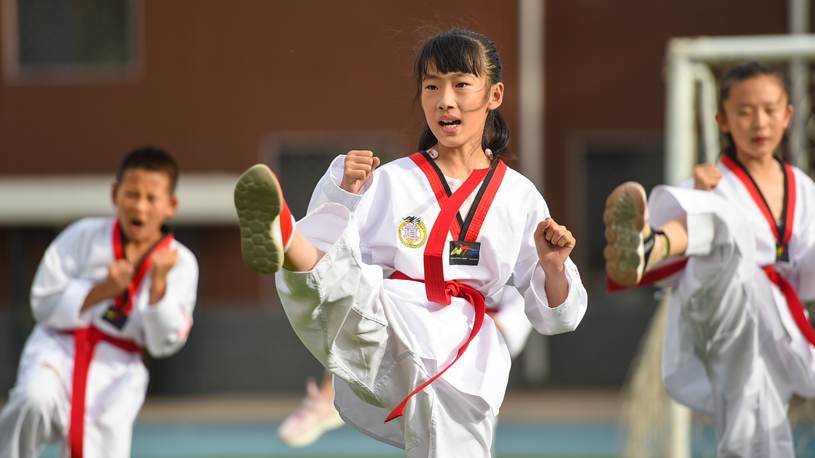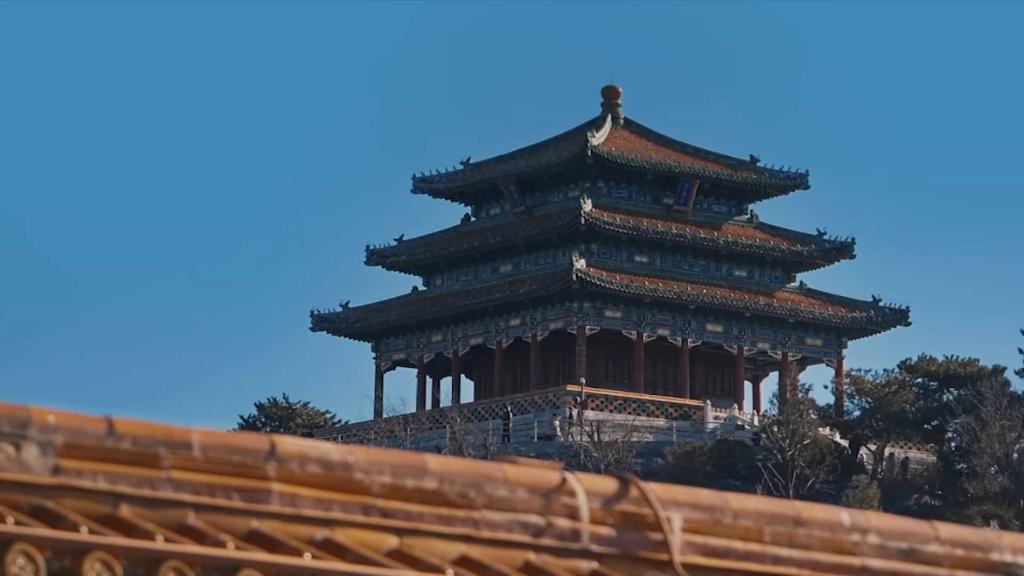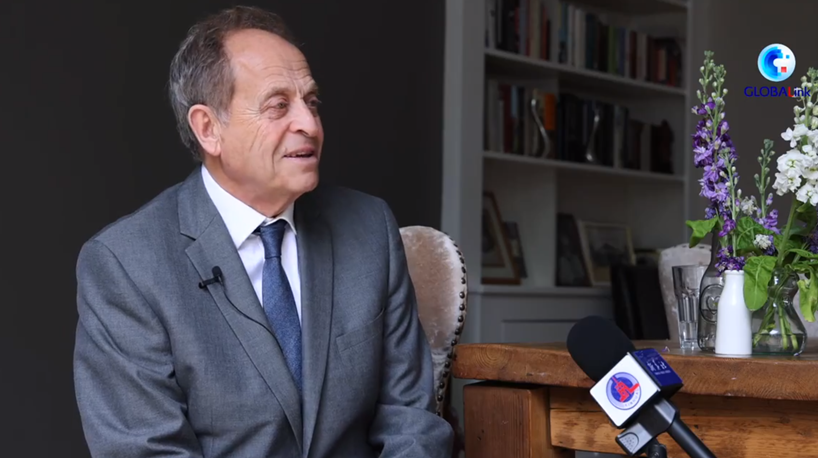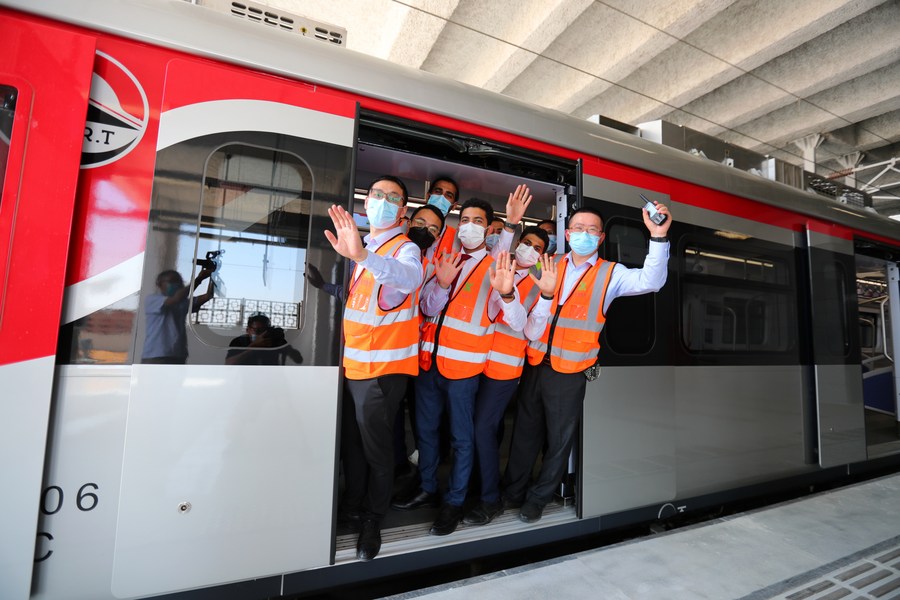
Chinese and Egyptian workers pose for photos with a light rail transit (LRT) train at the Badr station of the LRT during a trial running, in Cairo, Egypt, on July 3, 2022. (Xinhua/Sui Xiankai)
CAIRO, July 3 (Xinhua) -- Egypt's first electrified light rail transit (LRT) system jointly built by Chinese and Egyptian companies started its trial run on Sunday.
Egyptian President Abdel-Fattah al-Sisi took the first ride of the LRT at its inauguration ceremony, which was also attended by Egyptian Prime Minister Mostafa Madbouly and Chinese Ambassador to Egypt Liao Liqiang.
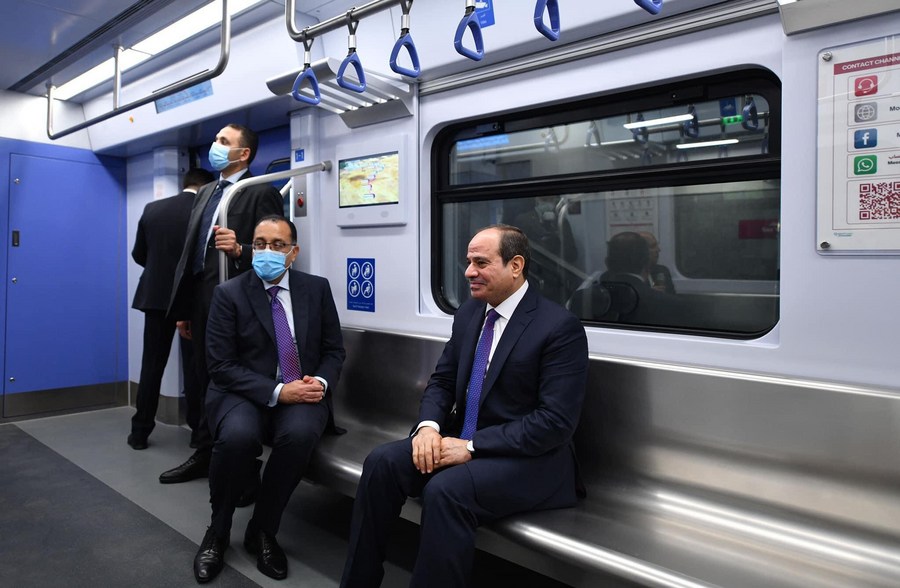
Egyptian President Abdel-Fattah al-Sisi (R) and Egyptian Prime Minister Mostafa Madbouly take a ride of the light rail transit (LRT) train while attending the inauguration of the country's first electrified LRT system, in Cairo, Egypt, on July 3, 2022. (Egyptian Presidency/Handout via Xinhua)
The LRT project is the fruit of a 1.24-billion-U.S. dollar contract signed in August 2017 between Egypt's National Authority for Tunnels (NAT) and the consortium of China Railway Engineering Corporation and AVIC International Holding Corporation (CREC-AVIC INTL Consortium).
The rail project connects the New Administrative Capital (NAC) being constructed east of Cairo with surrounding distant new cities and districts including El-Salam City, 10th of Ramadan City, El-Obour City, Badr City and El-Shorouk City.
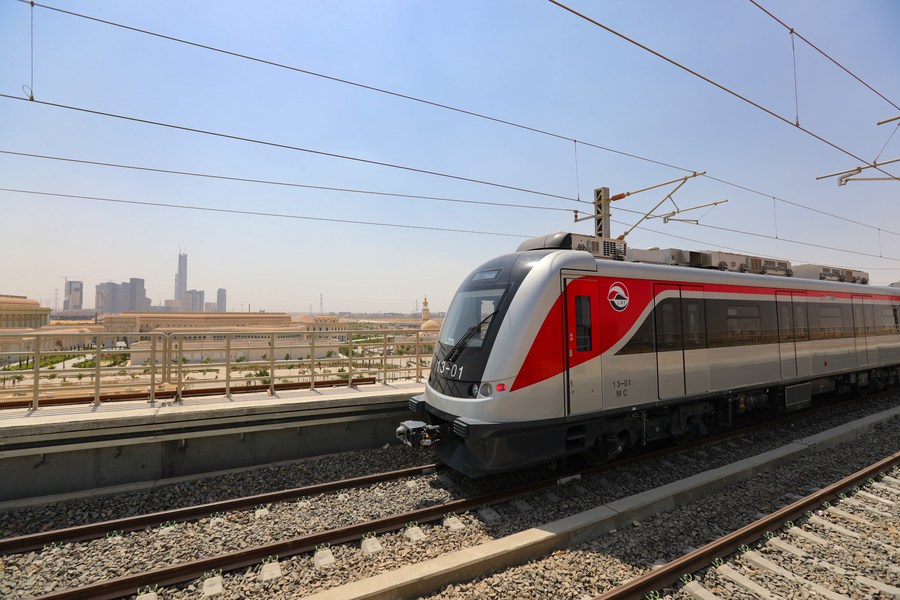
A light rail transit (LRT) train travels during a trial running past the Central Business District (CBD) of the New Administrative Capital (NAC) being constructed, east of Cairo, Egypt, on July 3, 2022. (Xinhua/Sui Xiankai)
Egyptian Transport Minister Kamel el-Wazir said the first phase of the LRT contains 22 trains and will serve 360,000 passengers daily.
The 12-station alignment of the LRT starts from the huge Adly Mansour central station, a transportation hub east of Cairo, and ends at the NAC, including seven bridges, three tunnels, two substations and one depot.
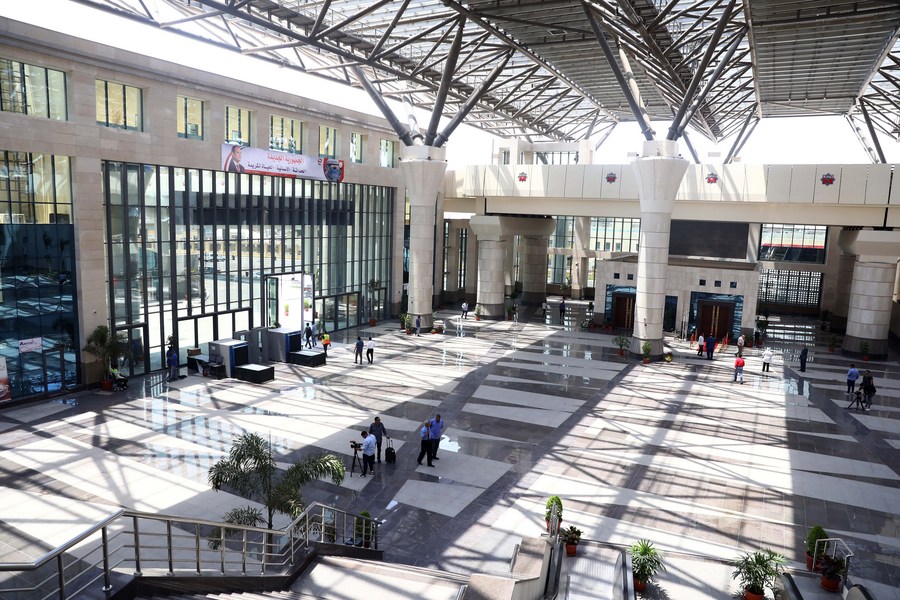
Photo taken on July 3, 2022 shows the interior of the Adly Mansour station, a starting station of the light rail transit (LRT), in Cairo, Egypt. (Xinhua/Ahmed Gomaa)
The LRT project is divided into several phases, covering a total distance of about 103 kilometers with 19 stations.
The current phase that is being inaugurated today covers a distance of about 70 kilometers with 12 stations. The future phases would include a south extension that covers a distance of around 18.5 kilometers with four stations and a north extension that covers about 16 kilometers with three stations, the transport minister pointed out.
Around 20 Egyptian and 15 Chinese companies took part in the execution of the project, according to the minister.
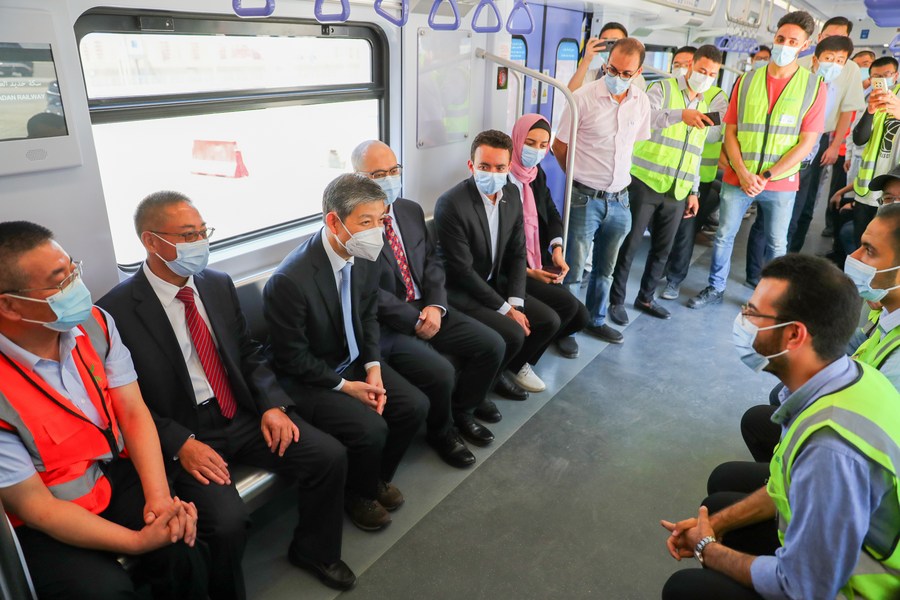
Chinese Ambassador to Egypt Liao Liqiang (3rd, L) talks with Chinese and Egyptian workers on a light rail transit (LRT) train at the Badr station of the LRT, in Cairo, Egypt, on July 3, 2022. (Xinhua/Sui Xiankai)
"The project was financed by China, adopted Chinese technology and equipment, and was jointly implemented by Chinese and Egyptian enterprises," Liao said, adding that all participants worked hard to keep the progress of construction while fighting against the COVID-19 pandemic.
The Chinese enterprises also provided training for young Egyptian technicians to support the construction and maintenance of the project, Liao added.
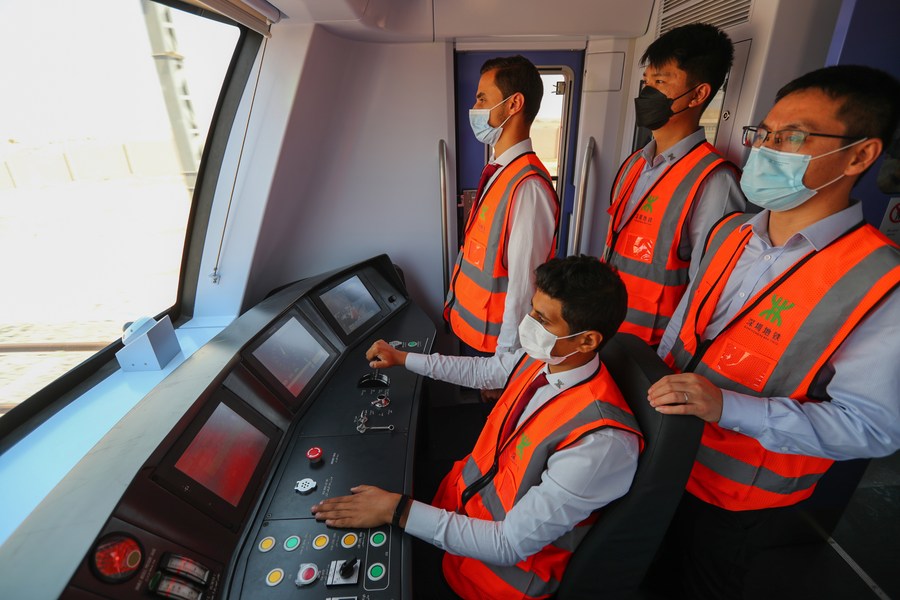
An Egyptian light rail transit (LRT) train driver, who have been trained by China, operates a LRT train staring from the Badr station of the LRT during a trial running, in Cairo, Egypt, on July 3, 2022. (Xinhua/Sui Xiankai)
Mohamed Nosir, who was behind the wheel in the trial run, used to train at Nanjing Vocational Institute of Railway Technology in 2018.
"Many friends always asked me when they could take this rail to work. They are looking forward to its opening," Nosir told Xinhua. "The light rail is very comfortable and stable, and the speed is faster than the subway."
Hassan Mahdy, professor of transport and roads at Cairo-based Ain Shams University, said that the LRT is very important as it links the new cities east of Cairo, including the NAC, with all districts of Greater Cairo.
He added that "the project is also a nucleus for further Egyptian-Chinese projects in the transportation industry and the localization of transportation technology in Egypt.
"It is positive for both sides, as it's a required service in Egypt and I believe the Chinese side is keen to transfer its relevant technologies and to expand the market for its transportation products. So, it's a win-win project," the Egyptian professor told Xinhua. ■

